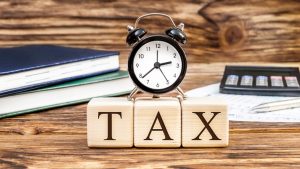The Department of Veterans Affairs (VA) has finalized new rules that establish an asset limit, a look-back period, and asset transfer penalties for veterans applying for VA Aid & Attendance pension benefits. The Veterans Aid and Attendance Benefit pays a monthly pension to low-income veterans or their spouses who are in nursing homes or who need help at home with everyday tasks like eating, bathing, dressing, using the toilet or walking.
Currently, to be eligible for Aid and Attendance a veteran or his spouse must meet certain income and asset limits. The asset limits aren’t specified, but the range is $40,000 to $80,000 depending on the age of the veteran. In the past there have been no penalties if an applicant divests himself of assets right before applying. That is, before now you could transfer assets over the VA’s limit to an Intentional Defective Grantor Trust or transfer them to your children before applying for benefits and the transfers would not affect eligibility. The new regulations prevent that by setting a net worth limit of $123,600, which coincidentally is the current maximum amount of assets in 2018 that a Medicaid applicant’s spouse is allowed to retain. But in the case of the VA, this number will include both the applicant’s assets and income. It will be indexed to inflation in the same way that Social Security increases. The good news is an applicant’s house (up to a two-acre lot) will not count as an asset even if the applicant is currently living in a nursing home. Applicants will also be able to deduct medical expenses including payments to assisted living facilities from their income.
The regulations also establish a three-year look-back provision. Applicants will have to disclose all financial transactions they were involved in for three years before applying for VA benefits. Applicants who transferred assets to put themselves below the net worth limit within three years of applying for benefits will be subject to a penalty period which can last as long as five years. This penalty is a period of time during which the person who transferred assets is not eligible for VA benefits. There are exceptions to the penalty period for fraudulent transfers and for transfers to a trust for a child who is unable to support him or herself.
Under the new rules, the VA will determine a penalty period in months by dividing the amount transferred that would have put the applicant over the net worth limit by the maximum annual pension rate (MAPR).
You will need the following information to apply for VA Aid & Attendance Benefits:
• Discharge or Separation Documents (DD 214)
• Form 21-4142: Authorization and Consent to Release Information to the Department of Veterans Affairs
• Physician Statement, VA Form 21-2680 or Nursing Home Statement, VA Form 21-0779
• Medical Expenses incurred, VA Form 21P-8416
• Marriage Certificate and Death Certificate (Surviving Spouses only)
• Asset Information (bank account statements, etc.)
• Verification of Income (social security award letter, pensions, IRAs or annuity statements)
• Proof of Medical Premiums (Insurance Statements, Medication or Medical bills that are not reimbursed by Medicare)
The new rules go into effect on October 18, 2018. The VA will disregard asset transfers made before that date. If you need estate planning assistance please contact Gregory J. Spadea at 610-521-0604. Mr. Spadea has been preparing free wills for Veterans since 2001 to thank them for their service.











